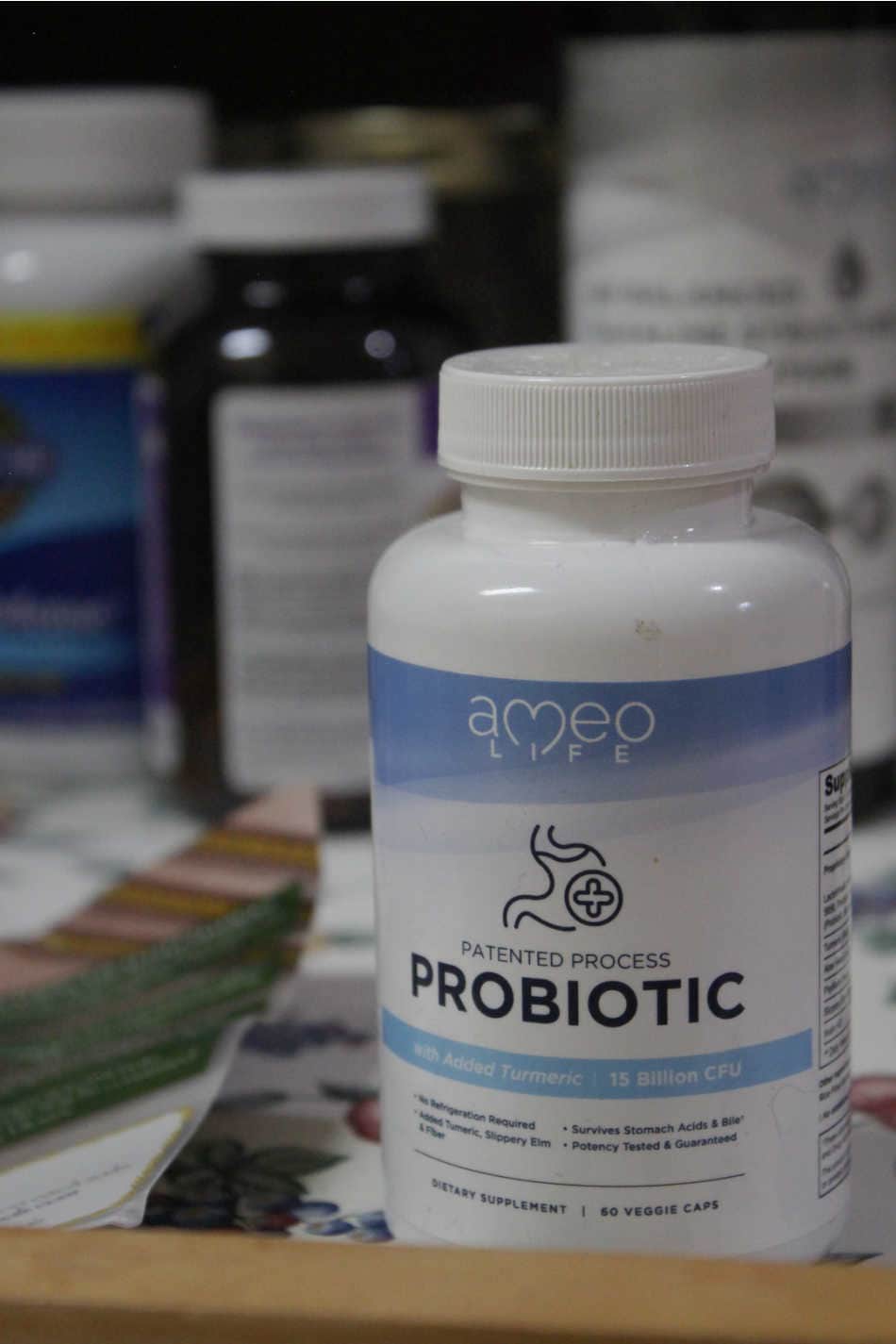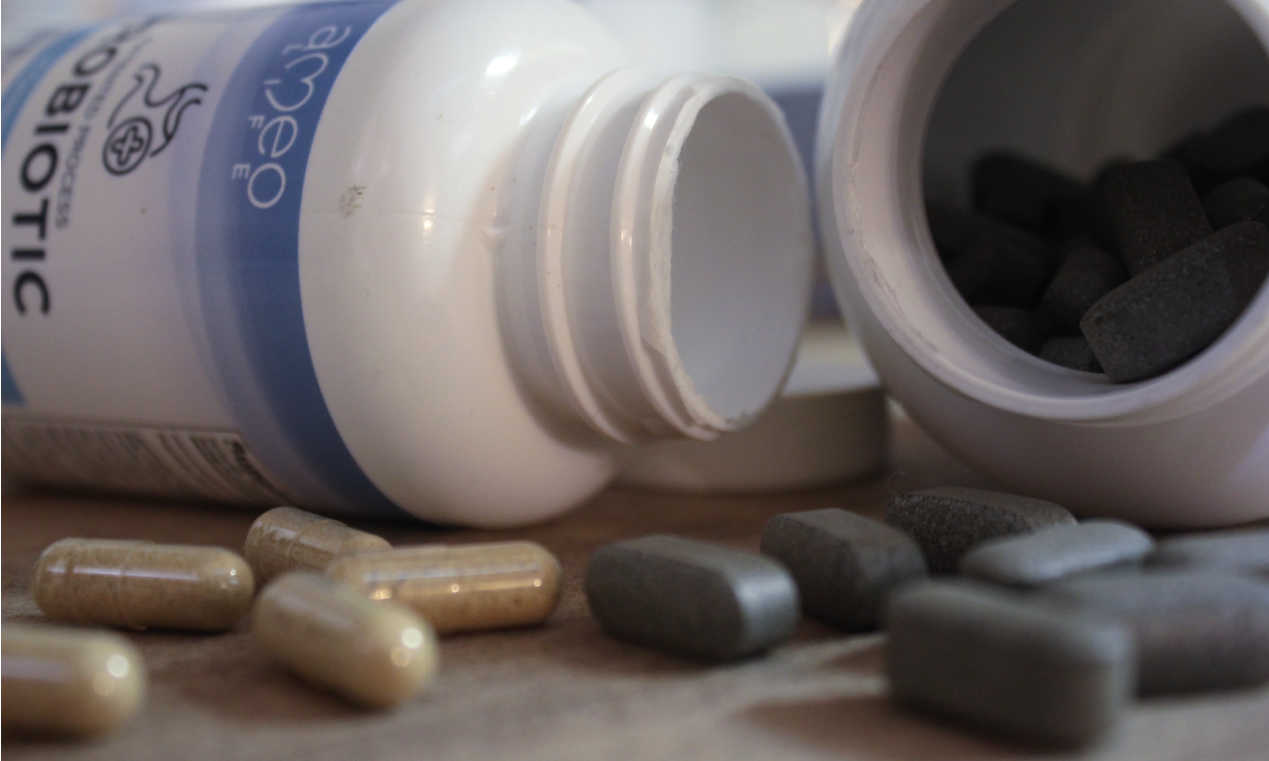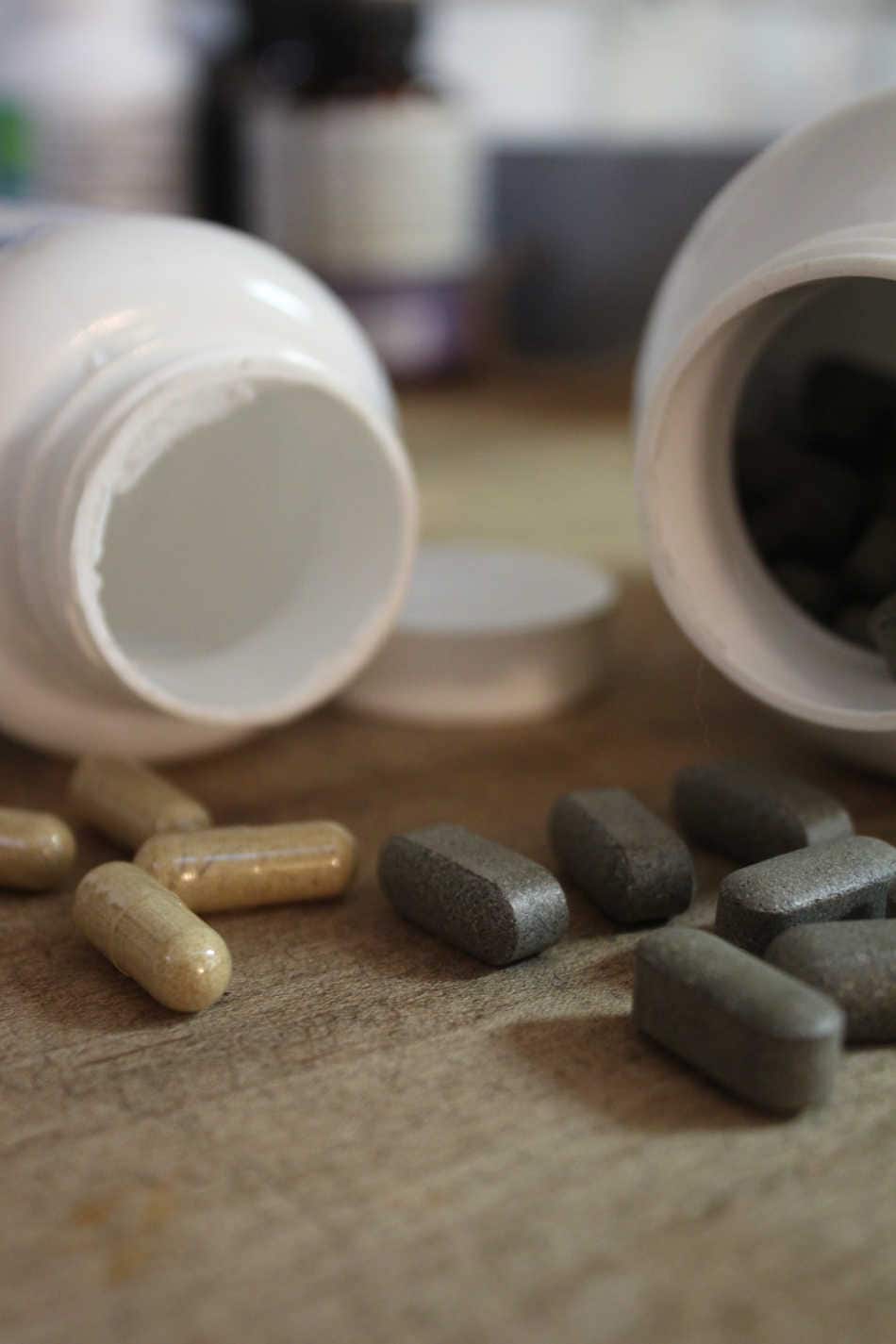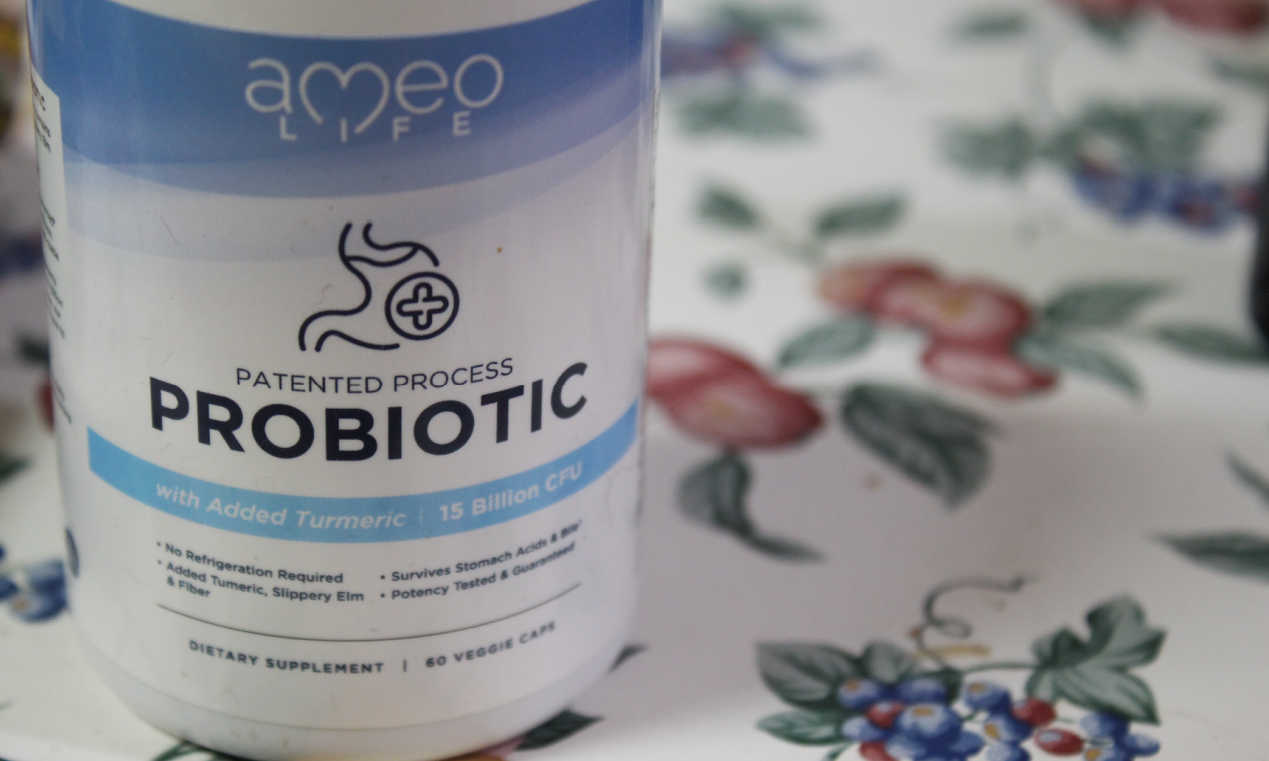
This post is sponsored by AmeoLife
While it’s common knowledge that probiotics are a useful supplement for optimal gut health, they can be pricey, especially when used long-term. While we don’t all need probiotics all the time, if you’re showing symptoms of a gut microbiome imbalance, probiotic supplements can be an important part of a gut restoration protocol.
If you do find yourself needing a daily probiotic supplement, I’d like to share 5 tips to help you get the best results from your daily probiotic so they work to your gut’s benefit and don’t waste your hard earned money!
Now before I get to these tips, let me quickly tell you why you should prioritize your gut health.
Your Gut Health Should Be A Top Priority

Our digestive tract — aka, the gut — is how we keep our body nourished, functioning properly, and healthy — all of which are important things in order to live a vibrant, healthy life.
When our gut is functioning properly, it works to keep harmful substances out of our body and allow helpful nutrients into the body.
In order for the gut to function properly, the tissues of the gastrointestinal tract need to be tight, toned, and strong, the gut microbiome (bacteria found in the GI tract) needs to be properly balanced, the right amount of digestive secretions need to be present when food is eaten, and regular elimination should occur daily.
Having a healthy diet can go a long way in helping the gut to function properly as can other holistic lifestyle practices like regular movement, stress reduction, healthy sleep patterns, minimizing environmental toxins, etc. Eating a balanced real food diet with plenty of fiber and cultured or fermented foods can help set you up for good gut health. Using a daily multivitamin and mineral supplement can also help fill in dietary gaps when needed.
When gut bacteria is concerned, eating cultured and fermented foods regularly is a good start, but probiotic supplements can help if those things are infrequent or lacking in your diet.
While diet over supplements is always the best way to go, most of us struggle to have an optimal diet 100% of the time. That is unless we’re full time homesteaders growing all our own organic foods, raising our own grass-fed meats, and doing all the things to ensure we’re getting all the nutrients and minerals we need from the foods we eat.
For those of us who aren’t farmers and don’t always have a 100% clean diet, supplements — nutritional and herbal — can be used to give us a boost when needed.
So if you find yourself considering a probiotic supplement to support your gut microbiome, here are 5 tips to help you get the best results for optimal gut health.
How To Get The Best Results from your Daily Probiotic

Below are 5 things to help you get the best results from a daily probiotic supplement.
- Choose a high-quality probiotic
- Take it on an empty stomach when pH isn’t as high
- Use it consistently
- Rotate your probiotics every 3-4 months
- Use it alongside gut supportive herbs
Choosing a High-Quality Probiotic
If you’re new to probiotic supplements, it can be hard to know which one is the right one for you. I mean, there are SO many choices on the market today, and every company says they’re the best.
But here’s the deal.
There are a lot of great probiotic supplements out there and there are some not-so-great ones as well. So here are a few things to keep in mind when looking for a high-quality probiotic.
- It should contain various strains of these three bacteria families — Lactobacillus, Bifidobacterium, and Saccharomyces — all known for their gut and immune support. Lactobacillus species populate the small intestines, Bifidobacterium species populate the large intestines, and Saccharomyces species is a friendly yeast that can help strengthen the lining of the GI tract.
- Avoid probiotics with dairy ingredients and fillers.
- Research brands that can show quality testing, from raw ingredients to the finished product. Bonus points for brands who use advanced technology that preserves a probiotic supplement’s survival on the shelf and in your gut.
- Look for a probiotic dose that contains billions of organisms, not millions.
- Look for expiration dates and storage information on the bottle. Some probiotics require refrigeration and others don’t. Both are effective as long as you store them properly.

Timing Is Everything
Most probiotics should be taken on an empty stomach between meals. Taking probiotics on an empty stomach helps to ensure they don’t come into contact with as much stomach acid as they would if you took them with food. Keeping acid away from the supplement as much as possible will help ensure that more of the bacteria are released in the small intestines, which is more alkaline than the upper GI tract, and have the best chance of survival.
Consistency is Key
Probiotics are meant to be used daily when they are needed. Most times, you start with a low dose and slowly work your way up to the full dose. You continue this full dosage for 3 months, and then reassess to see if you need to continue using probiotic for optimal gut health.
Depending on the symptoms you’re dealing with or your diagnosis, some people need to take a daily probiotic supplement for 6-12 months or more. Those with serious digestive disorders like Crohn’s disease, ulcerative colitis, or irritable bowel syndrome (IBS) need daily probiotic supplements continuously as they work on restoring their gut health.
Rotate Your Probiotics
One thing I learned from Sajah Popham, my advanced clinical herbal teacher, is when you are guiding a client through a gut restoration protocol, it’s important to switch up the types of probiotics you use once a quarter (every 3 months). This ensures that you populate the gut with various types of bacterial strains and doesn’t allow the gut to become too accustomed to the same thing over and over.
After having to take a round of antibiotics (the first I’ve needed in 20 years), I started with AmeoLife’s patented, pH stable probiotic first and then slowly worked my way through other brands to help repopulate my gut microbiome.

Include Gut Supportive Herbs
The last thing that you can do to help your daily probiotic supplement to be more affective is to use it alongside herbs that help support overall gut health. This can be herbs with the following actions: vulnerary (tissue regenerative), astringent (tighten and tone cells), and demulcent (cool, sooth, and moisten inflamed tissues).
Each of these types of herbs can be useful in the gut restoration protocol, and as the tissues of the gastrointestinal tract are supported and begin to function properly, the better chance the daily probiotic supplement you’re taking will benefit your microbiome.
AmeoLife Probiotics & Why I’m LOVING Them

As I mentioned earlier, I used AmeoLife probiotics after a recent round of antibiotics.
A couple of months ago, I came down with an infection that I simply couldn’t shake regardless of all the herbal and natural supplements I tried. This common infection left me with no choice but to take a round of antibiotics so more damage wasn’t done. So here I am, now doing what I can to recover from the microbiome imbalances that antibiotics can cause.
The reason I wanted to start with AmeoLife probiotics is because they check a lot of the above boxes when looking for a high-quality vitamin, such as having a proprietary pre- and probiotic blend of bacteria, billions of cultures, are pH and shelf stable, added herbal support, are tested for quality, and are decently priced.
If you find yourself needing a daily probiotic supplement, definitely check out AmeoLife. You can get 25% off your first order when you use this link, saving you even more money while giving you an effective probiotic at the same time.
Love and light,
Meagan